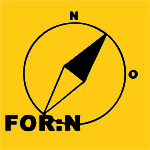A comparison of right-wing populist parties in Northern Europe: differences and similarities
Panel debate at the Fehmarnbeltdays in Lübeck, June 15, 14-15 pm
Theaterschiff Stage
Moderation: Dr. Kaarina Williams (Senior Advisor, Ministry for European Affairs of Land Schleswig-Holstein and Member of Forum Northern European Politics FORN)
Panelists:
Dr. Tobias Etzold (Researcher, Norwegian Foreign Policy Institute and FORN, NO/DE),
Marc Timmer (MP S-H, Member of BSPC delegation, Socialdemocratic Party, DE),
Nikola Lewicka (Baltic Sea Region Youth Forum/Committe of Youth Representatives, PL)
While the Alternative for Germany (Alternative für Deutschland AfD), a right-wing populist party, has only been represented in parliament for eight years in Germany, right-wing populist parties have long been an integral part of the political spectrum in Northern Europe. They were and are even part of governments or tolerate the typical Scandinavian minority governments. While they take a radical stance on migration issues and their social influence is quite noticeable, they are pragmatic on other issues and have so far done little damage to the Nordic political-democratic systems.
These remain stable and are characterized by people’s trust in the state, a still strong welfare state system, regular changes of government, equality and educational justice. This makes it somewhat easier for the established parties to work together with right-wing populists.
One question we want to explore during the panel debate is what (northern) European and other European, including German, right-wing populist parties have in common and what distinguishes them from each other? Moreover, how does the democratic system in the respective countries respond to them? Is the AfD party ban only a German discussion?
It is well known that all of the right wing parties in Europe want to significantly restrict migration, but what are their positions on the preservation of democratic rights, the welfare state, climate protection and foreign and security policy?
Especially in the latter areas, the differences are sometimes considerable. The AfD, Hungary’s Fidesz and Italy’s Lega Nord, for example, remain loyal to Russia, while their Nordic counterparts have turned their backs on Russia. The Nordic right-wing populists voted in favor of military support for Ukraine in their parliaments, while the AfD and others reject it. This also corresponds to surveys in which, for example, 70% of the population in Norway are in favor of supporting Ukraine, while only 48% do so in Germany. The AfD is NATO-sceptical, while in Sweden and Finland right-wing populist parties have voted in favor of their countries joining NATO.
At this panel discussion at the Fehmarn Belt Days 2025 in Lübeck, experts will discuss which issues make the parties in the respective countries strong, how the differences come about and what they say about the respective country, its people and how to deal with right-wing populist parties.
Contact: Kaarina Williams (MLLEV, FOR:N), Kaarina.williams@mllev.landsh.de

